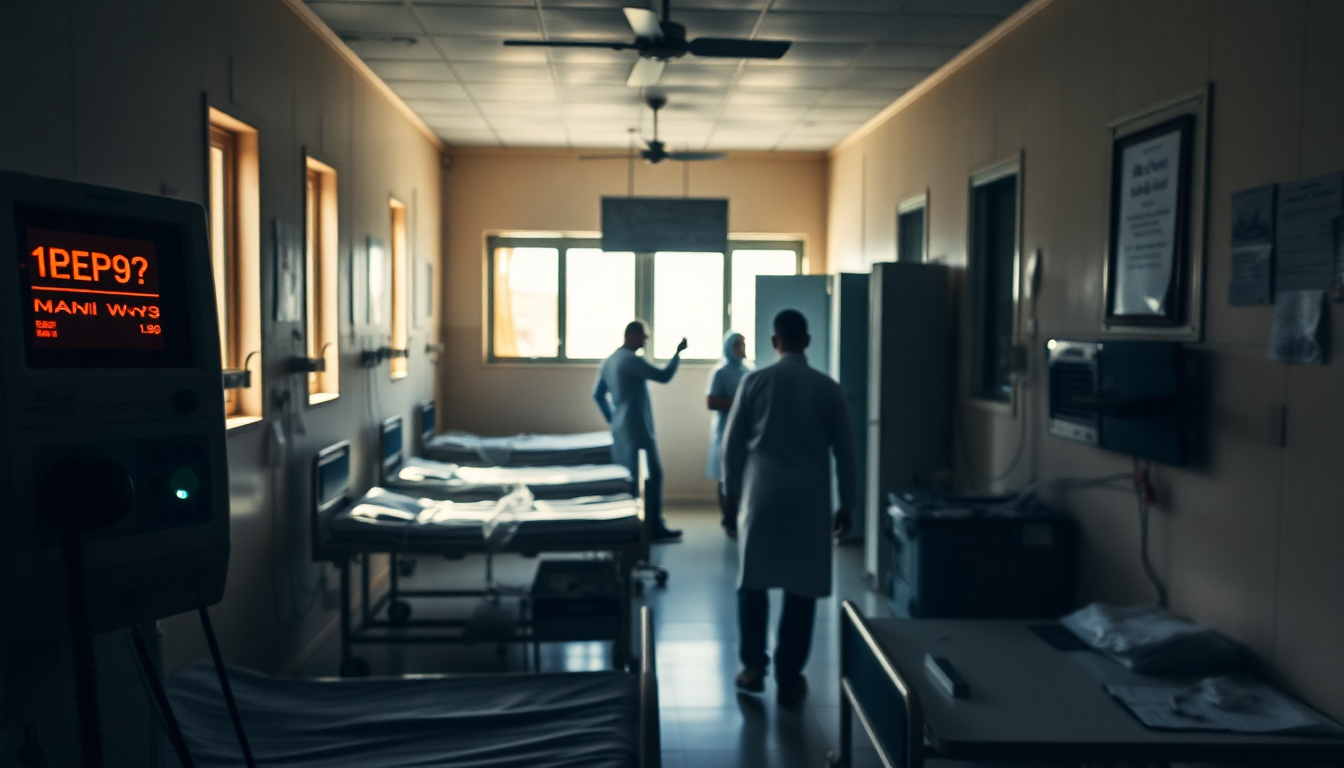Table of Contents
The ongoing conflict in Gaza has reached a critical juncture, and it’s hard to ignore the alarming news coming from two of the region’s largest hospitals, al-Shifa and Nasser. These facilities are sounding the alarm for help, as they’re on the brink of losing electricity due to severe fuel shortages caused by the Israeli siege. Imagine the impact this could have on patients relying on life-saving care. The situation truly underscores the humanitarian crisis unfolding in Gaza, where the healthcare system is buckling under relentless bombardment and a dire lack of resources.
The Current State of Healthcare in Gaza
Let’s take a closer look at al-Shifa Hospital, the largest medical center in Gaza. According to its director, Muhammad Abu Salmiyah, they’re facing a chilling reality: the lives of over 100 premature infants and around 350 patients requiring dialysis hang in the balance. The lack of fuel could shut down oxygen stations, cripple laboratory services, and spoil critical blood supplies. It’s a stark reminder that without power, a hospital can quickly transform from a place of healing into a potential graveyard for its patients.
Meanwhile, Nasser Hospital in Khan Younis is in a similarly precarious position. Medical teams there describe a race against time as they make desperate pleas for aid. They need about 4,500 liters of fuel every day to keep operating, but right now, they only have enough to last another 24 hours. The conditions are so dire that surgeries are being performed without electricity, putting patients at an even greater risk of infection. Can you imagine the stress on both the medical staff and those in need of urgent care?
The Impact of the Ongoing Conflict on Healthcare Facilities
The relentless bombardment of Gaza has been systematically dismantling its healthcare infrastructure for over 21 months. Shocking as it is, the World Health Organization (WHO) reports that there have been more than 600 attacks on health facilities, leaving only a small number still operational. Out of 36 hospitals, only 19 remain partially functional, with a staggering 94 percent reported as damaged or destroyed. And healthcare workers aren’t exempt from the violence; over 1,500 health professionals have lost their lives, and many more are detained.
As fuel shortages continue, critical medical supplies are also dwindling. The WHO has described the health sector in Gaza as being “on its knees,” overwhelmed by the wave of casualties resulting from ongoing attacks. Without essential resources like fuel and medical supplies, the future of healthcare here looks bleak. The director of field hospitals in Gaza has warned that if the situation doesn’t improve soon, hundreds of lives could be lost—especially among the most vulnerable, like premature infants and dialysis patients. It raises an urgent question: how many more lives can we allow to hang in the balance?
The Humanitarian Crisis and the Call for Action
Organizations like UNICEF are amplifying the urgent need for intervention. They emphasize that without fuel and medical supplies, healthcare facilities simply cannot function. It’s a stark reality: even the best medical staff, when deprived of basic resources, find themselves unable to save lives. The humanitarian situation is made even worse by the prolonged blockade, which has restricted access to essential supplies, including fuel, for over four months now.
The international community faces an urgent challenge to address this crisis. The UN’s humanitarian agency has highlighted the immediate need for regular fuel deliveries to stop the healthcare system from crumbling further. Hospitals are currently rationing their supplies, and without a significant influx of fuel and medical resources, the death toll is expected to rise steeply in the coming days.
As the conflict drags on, the humanitarian implications are staggering. The ongoing siege and attacks on Gaza have already led to heartbreaking losses, with thousands of lives lost and countless more at risk. The urgent calls from the medical community highlight the critical need for immediate action to prevent a catastrophic situation that threatens the lives of so many in Gaza. What will it take for the world to respond decisively to this crisis?


